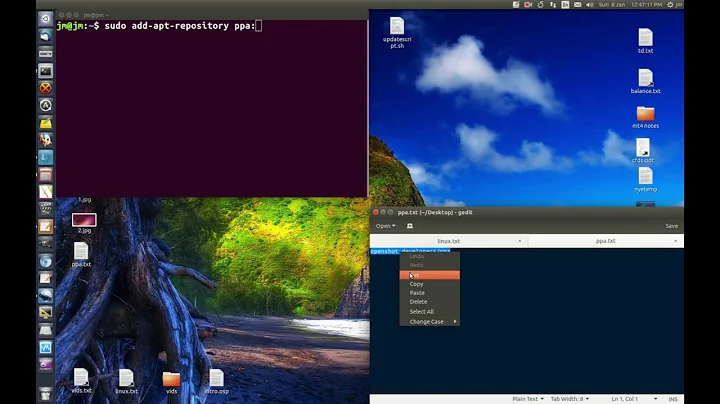Repositories of Linux Mint, Ubuntu, Debian
Your questions are some what kind of complex so I don't think I can answer them all correctly. If someone read this post and see anything incorrect, please tell me to fix it. And also remind that I can only answer Debian - Ubuntu repo relationship, since I can't catch up Mint development goal and way.
Despite the fact that Ubuntu is based on Debian, it only picks the packages that it wants (89% as of 2010) then modifies them (Ubuntu regular stable releases draw from Debian unstable branch "Sid", while Ubuntu LTS releases draw from Debian testing branch, which draws from Sid). So depends on the goal, some Debian packages may be or may not be in Ubuntu. For now, 2015, Ubuntu and Debian are no longer compatible to use each other's repo.
No, you are not missing nothing. But also keep in mind that packages number can't say nothing due to packaging method, if you want real comparison, look for source packages number.
No exactly. As I mentioned, Ubuntu takes most of its repo from Debian Sid (or unstable, but I prefer the previous name) what is fairly up-to-date. Those softwares get tested, managed for a few (6, I think) months before get released in the schedule of twice a year. In Debian, softwares after got into Sid go to testing (after 10 days if no one can find more bugs). They might not ever go to Debian stable (what would be released) if they don't get to the right time, but if they get to testing in frozen time, they will get tested for another 7 months.
That's right, don't never try to do it unless you want to f*k your own system up. Mint is based on Ubuntu and the later 'un is based on Debian, but doesn't means they share the same dependencies. However, there is sth shared along Ubuntu and its derivatives: the ppa.
Well, yea, if saying sth like 90-95% then yes.
Like Drav Sloan said in his comment, they are not same distros. E.g. wit Debian , you can archive nearly perfect stability, but not in Ubuntu or you can't have attractive installer in Debian.
Debian's unstable branch is and will always be named "Sid", while the other branches (testing, stable, oldstable) are getting a unique codename for each release (Stretch (Debian 9, currently in testing), Jessie (Debian 8, currently stable), Wheezy (Debian 7, currently oldstable), Squeeze...). See this link for more and updated information.
Related videos on Youtube
Admin
Updated on September 18, 2022Comments
-
 Admin over 1 year
Admin over 1 yearThis was bugging me for really long time, but I was quite ashamed to ask, as this looks like most basic question about Linux.
Linux Mint builds on top of Ubuntu and Ubuntu on top of Debian (I know that there is LMDE but I am intentionally skipping it).
If someone will create a program for Debian (that can be installed with .deb for simplicity) then it can be run on Ubuntu as well as Mint. (I am making general assumption here - ex. I had troubles installing Intel drivers on Mint, as they where intended for Ubuntu)
Now, Ubuntu has some stuff, that Debian does not have BY DEFAULT (but probably can have by manual install, but that's not the point) like software-center, and Mint has stuff that Debian and Ubuntu does not have like mintupload mint-whatever. Again, I know that they can be (probably) installed on Debian too, but I am talking about default repositories only.
- So, it would be reasonable, if Mint would have more packages in default repo than Ubuntu, and Ubuntu than Debian, right?
However, wikipedia says its not. More, wikipedia says, that in terms of number of packages: Debian > Ubuntu > Linux Mint.
https://en.wikipedia.org/wiki/Comparison_of_Linux_distributions#Package_management_and_installation
Am I missing something? At first, I thought, that that can be "own" packages, so Ubuntu would have number of packages equal to itself plus Debian's, but that would mean, that Ubuntu has nearly double (and Mint triple) more packages than Debian, so this looks strange too.
If Ubuntu builds on Debian, then Ubuntu will always have older packages than Debian, right?
The whole point of this question is to figure out a way, to have access to possibly widest (in terms of quantity) amount of packages, however in same time to possibly newest (in terms of version of software).
If I am not mistaken (very much) then adding all 3 repos (Debian, Ubuntu, Mint) with their newest versions would be quite redundant and could cause problems with dependencies, right?
Does Linux Mint's repository contain everything, that can be found in Ubuntu's (or at least 95%) and same for Debian/Ubuntu?
If (5) is true, then why would anyone use Debian or Ubuntu? (stability could be achieved by using older versions of OS)
-
ivanivan over 6 yearsGood answer...except Mint points directly at Ubuntu repos.




